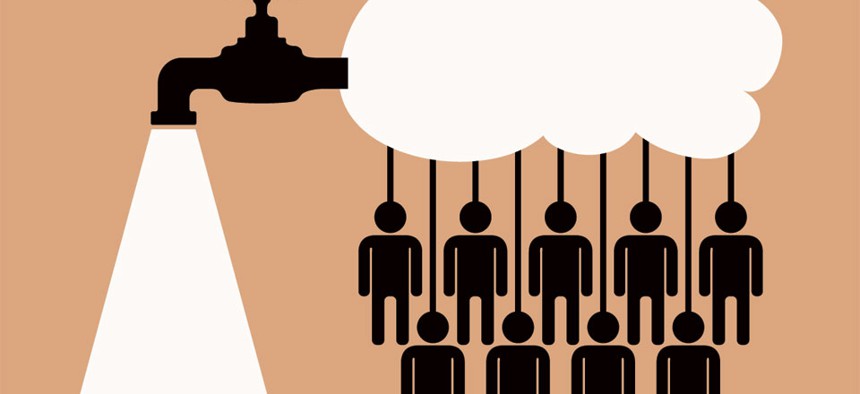Private-Sector Technologists -- the White House Wants You

igor kisselev/Shutterstock.com
The third group of Presidential Innovation Fellows will focus on open data and crowdsourcing.
The White House is recruiting a third round of non-government technologists to tackle thorny government problems on a short term basis, according to a notice posted on Thursday.
This round of Presidential Innovation Fellows will spend six month tours working on projects related to government crowdsourcing, open government data and improving digital services for veterans, the notice from the White House’s Office of Science and Technology Policy said.
Previous innovation fellows teams have focused on projects to make veterans’ health care information more accessible through the Blue Button initiative, easing government contracting burdens for small technology startups and increasing innovation in international development, among others.
Federal Chief Information Officer Steven VanRoekel has said he plans to use the innovation fellows program as a model to bring more private sector talent into government in the coming year.
Round three crowdsourcing fellows will work on five projects:
- A State Department program to share geographic data with OpenStreetMap to aid development and humanitarian projects as well as to assist during disaster responses.
- Building crowdsourcing tools for the U.S. Patent and Trademark Office to solicit help from the public and industry in finding “prior art” -- essentially an existing example of a technology or idea that someone is seeking to patent -- that might invalidate patent applications.
- Assisting with NASA’s Grand Asteroid Challenge.
- Engaging the open source and civic hacking community to turn more documents held by the National Archives into machine readable formats.
- An Energy Department project to gather citizen feedback through mobile apps and social media about downed power lines and other information during disasters.
The Open data team will focus on eight projects to open up data from the National Oceanic and Atmospheric Administration, the U.S. Census Bureau, NASA, the Internal Revenue Service and the Interior, Labor, Health and Human Services, and Veterans Affairs departments.
The crowdsourcing and data innovation groups will be broken up into five and eight teams respectively, each focusing on a single, discrete project, an OSTP spokeswoman said. However, the teams will regularly meet and share technology tools, best practices and stumbling blocks, she said, so they can leverage and learn from each other’s work.
(Image via igor kisselev/Shutterstock.com)






